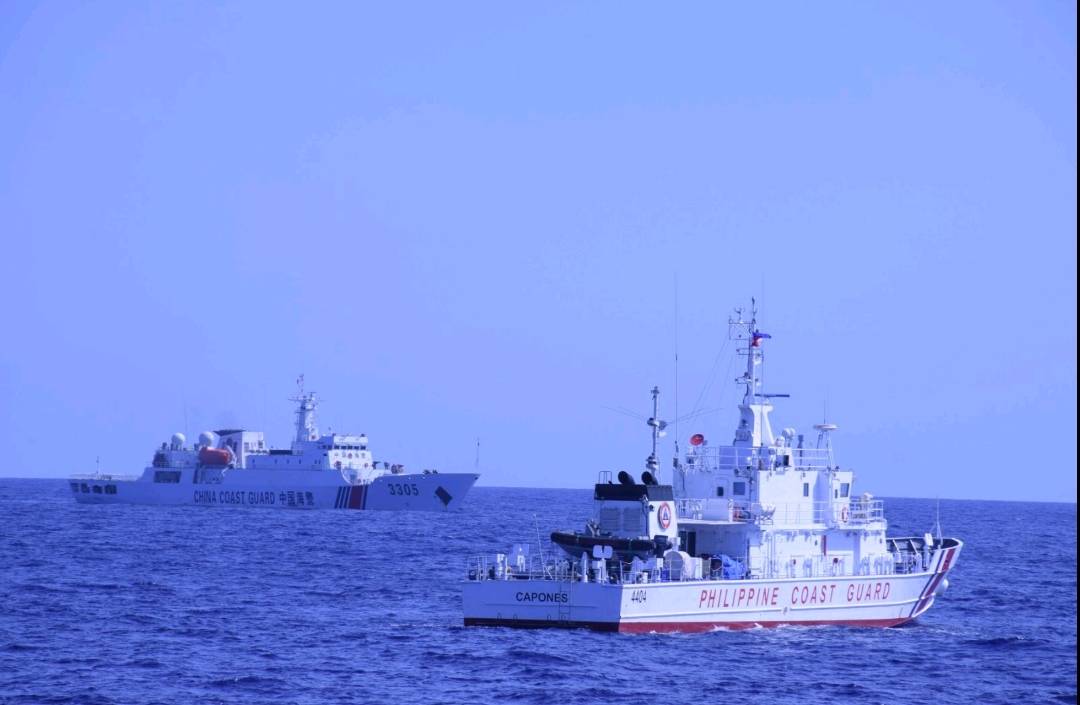Fishermen's group cries foul at China's lawfare strategy in West Philippine Sea

A group of fishermen in Masinloc, Zambales called out China for issuing a new regulation which allows its coast guard to arrest without trial “trespassers” in areas it claims in the South China Sea, including the waters within the Philippines’ exclusive economic zone (EEZ).
Leonardo Cuaresma, president of New Masinloc Fishermen Association, said China should retract the rule as it infringes on their right to catch fish in Bajo de Masinloc (Scarborough or Panatag Shoal).
Both China and the Philippines are claiming Bajo de Masinloc, which is located 124 nautical miles west of Zambales and is within the 200 nautical-mile EEZ of the Philippines.
“Sa akin bilang lider, hindi nila dapat gawin ‘yan sapagkat kami po alam namin ang batas na wala naman po tayong nilalabag ayon sa ating fishery law (As a leader, they should not do that because we know the law and we don’t violate our fishery law [whenever we go to Bajo de Masinloc]),” Cuaresma said in a radio interview over dzBB on Sunday, May 19.
“Bukod dyan, wala kaming anumang binu-bully o hina-harass na lahi nila. Alam namin na iyan ay teritoryo natin at pag-aari ng Pilipinas kung kaya’t wala silang dapat na gawin sa bagay na iyan (Aside from that, we don’t bully or harass anyone of their kind. We know that the area is part of our territory and owned by the Philippines so they should not change anything there),” he added.
China’s institution of their domestic laws to "legitimize their coercive activities" across the entire breadth of their dash-line claim in the South China Sea is called legal warfare or lawfare, according to a senior US defense official.
China’s lawfare, according to the official, also includes the distortion of international law and the United Nations Convention on the Law of the Sea (UNCLOS), as well as their disregard for the 2016 arbitral tribunal award, to benefit them and advance their interests in the region.
“China uses lawfare to legitimize their activities, right? And they can use lawfare, or legal warfare, as a tool, or an instrument, of coercion in its own right, or as pretext to legitimize some of its aggressive activities in the South China Sea, and elsewhere,” the official told the Manila Bulletin and nine other Filipino journalists who participated in a reporting tour hosted by the US Embassy in Manila and facilitated by the non-profit group Civilian Research Development Foundation (CRDF) and foreign policy think tank Pacific Forum in Hawaii recently.
To counter China’s lawfare, the United States, through the Indo-Pacific Command (Indopacom) is working with the Philippine government to “implement a counter-lawfare strategy which is aimed at denying China from acquiring a legal principle superiority as a pretext for their actions.”
Part of the counter-lawfare strategy is the release and publication of information papers called tactical aids or TACAIDS which are meant to highlight specific issues and the international law that applies to those issues, including the South China Sea dispute.
“We have to compete and push back on China to ensure that we maintain that legal and moral high ground. Recognizing the fact that we have, right now, we own that high ground because international law is on our side, we have the ability to continue to lean into that to ensure that the Philippines sovereign rights are protected,” the defense official noted.
The effectiveness of the Philippines and US’ cooperation to counter China’s lawfare strategy will have a direct impact on ordinary Filipinos, including the fishermen in Masinloc whose livelihood were heavily affected by new regulations as this will ensure their protection while accessing Bajo de Masinloc, which has been a traditional fishing ground for them for so many years.
“Hangga’t alam namin na wala tayong nilalabag, patuloy pa rin ang aming pangingisda doon (As long as we are aware that we are not violating anything, we will continue to fish there),” Cuaresma said.